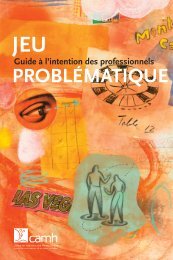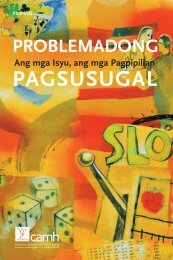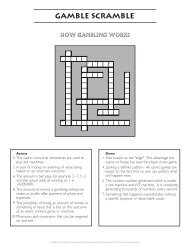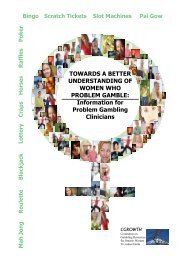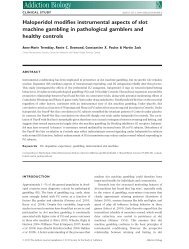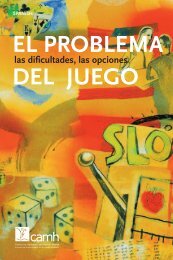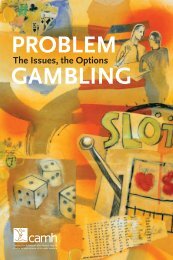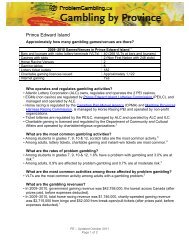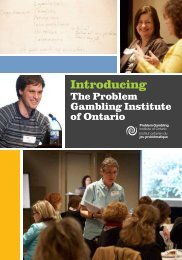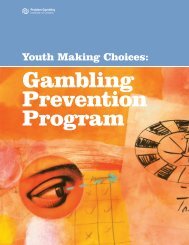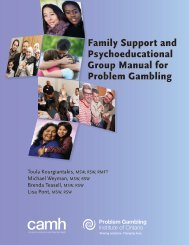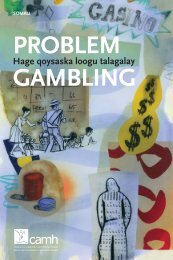Problem Gambling - A Guide for Families (PDF) - ProblemGambling.ca
Problem Gambling - A Guide for Families (PDF) - ProblemGambling.ca
Problem Gambling - A Guide for Families (PDF) - ProblemGambling.ca
You also want an ePaper? Increase the reach of your titles
YUMPU automatically turns print PDFs into web optimized ePapers that Google loves.
<strong>Problem</strong> <strong>Gambling</strong>: A <strong>Guide</strong> <strong>for</strong> <strong>Families</strong><br />
how it has helped you<br />
• praise the person <strong>for</strong> wanting to change<br />
• avoid situations that may trigger gambling<br />
• get emotional support <strong>for</strong> yourself<br />
• set clear limits and tell the person what you will do if he or<br />
she keeps gambling.<br />
stage 3: preparation: the person is<br />
preparing <strong>for</strong> change<br />
The person begins to set clear goals to help change his or her<br />
gambling, such as setting time and money limits around<br />
their gambling behaviour. He or she may talk about making<br />
bigger changes soon. The person may be more willing to talk<br />
about the risks and rewards of gambling when he or she is<br />
taking a break from it.<br />
You <strong>ca</strong>n:<br />
• support the person’s changes and encourage him or her to get<br />
help from a problem gambling counsellor<br />
• suggest that a trusted person manage his or her money<br />
• discuss with the person how they <strong>ca</strong>n limit their access to<br />
<strong>ca</strong>sh or credit. This will remove a major gambling trigger<br />
(triggers are things that make you want to gamble.)<br />
• suggest other activities to replace gambling, especially at<br />
times when the person gambled the most.<br />
stage 4: action: the person is taking<br />
action<br />
The person has reduced or completely stopped gambling. He<br />
or she is really working on the problem. This stage may take<br />
a lot of time and energy. As people try to change, they may<br />
slip back. They <strong>ca</strong>n usually get over these slips or relapses,<br />
and even learn from them.<br />
You <strong>ca</strong>n:<br />
• support the person as he or she replaces gambling with<br />
new activities<br />
• support the person in his or her counselling<br />
26



